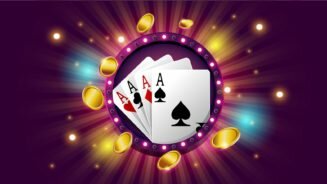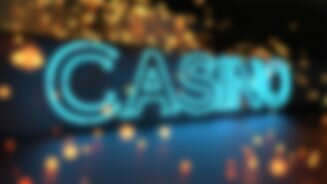Fact-Checking Resources
Why is fact checking so important? Because ethical conduct in the igaming community and industry is more important than ever before. Accountability on the interent is vital to our collective knowledge. Professional journalism has a code of ethics, believe it or not, and posting correct information is the duty of our journalists.
We try our best to research our facts and post the most up-to-date information about online casino promotions, casino news, and online casino reviews that will empower and protect our readers.
Each of our journalists is managed by the editor and each of us goes through a strict course to ensure that we are on the same page, so to speak, about ethics in journalism. We strongly believe in accountability journalism and know that sometimes we may not even have all the correct information. If you spot something that needs our review please contact us.
TIP SHEETS
Web Literacy for Student Fact Checkers – Mike Caulfield, Washington State University. A practical guide to online verification that teaches techniques from parsing URLs and checking Wikipedia pages for vandalism to finding deleted pages and judging the reputation of scientific journals.
The eight steps to a good fact check – Chequeado. Covers topics from choosing a claim to rating.
5 tips for fact-checking datasets – Poynter. Tips from Costa Rican investigative journalist Giannina Segnini.
First Draft Observation Challenge – A quiz to test your visual verification skills, especially those related to geolocation. More guidance can be found here. First Draft has lots of other great tipsheets, videos and interactives here.
#BotSpot: Twelve Ways to Spot a Bot – Atlantic Council’s Digital Forensic Research Lab. This piece is perhaps better described by its subhead, “Some tricks to identify fake Twitter accounts,” since fake accounts of all types spread misinformation while stealing identities.
7 steps to detect if someone is talking science nonsense – Africa Check. A guide for journalists and the public in evaluating scientific news and studies. (Africa Check has lots of other great tipsheets here.)
Investigative Web Research – The Engine Room. A toolkit for the nitty-gritty how-tos of web research, including how to document and store pages, how to investigate who owns websites, how to run advanced searches, and key databases of previous investigative work.
How to spot fake news – FlackCheck.org. Tips in video form. Or see the text version from FactCheck.org.
Calling Bullshit– University of Washington in Seattle. The full syllabus of a course on thinking critically “about the data and models that constitute evidence in the social and natural sciences.”
Factfulness Rules of Thumb – gapminder.org. This fact sheet emphasizes the role of emotion and drama in misinformation, and gives tips on mental maneuvers to help us be more rational
Criteria for reading health news – HealthNewsReview. These are the 10 criteria that media watchdog HealthNewsReview uses to evaluate health news stories – but they’re also a great way for readers to judge stories for themselves.
MORE READING: FACT CHECKS, DEBUNKS, AND ANALYSIS
Seeing is not believing: debunking Hurricane Irma Fakes – Storyful/First Draft
“Spot checking” video – Pagella Politica
Las Promesas de Eruvial – Prometo Como Eruvial – Animal Politico
Was a morgue employee cremated while taking a nap? – Snopes
Ukraine and MH17: 5 lessons from a 19-month geolocation puzzle – Bellingcat on First Draft
The Telegraph issues a public correction after scientists point to inaccuracies – Climate Feedback
Twitter thread on quick fact-check of a Hill headline – The Atlantic’s Yoni Appelbaum
Here’s How to Tell If a London Underground Service Sign is Fake, by BuzzFeed
Dissecting the #PizzaGate Conspiracy Theories, The New York Times
Donald Trump’s inaugural address: annotated, PolitiFact
RESEARCH, REPORTS AND BOOKS
Understanding and Addressing the Disinformation Ecosystem – Annenberg School for Communication, First Draft and Knight Foundation. A collection of short conference papers providing an introduction to the complex social, technological, psychological and economic enablers of misinformation, as well as some potential avenues for improvement.
American Views: Trust, Media and Democracy, Knight Foundation and Gallup. A detailed survey, finding that most Americans think misinformation is a major problem, yet most can’t think of a news outlet they trust to report objectively. Includes detailed data on party affiliation, gender, age and more.
Misinformation and Mass Audiences. Brian G. Southwell, Emily A. Thorson, Laura Sheble. Leading misinformation scholars sum up what we know so far on a variety of topics, including misinformation about health and science, visual misinformation, the role of the mainstream media, and possible remedies.
The Fact Checker’s Bible: A Guide to Getting it Right, by Sarah Harrison Smith. This book was written by a fact checker in the internal sense (see Glossary), but many of her lessons serve all types of fact-checking. Smith explains how to read for accuracy, determine what to check, and find resources to answer factual questions.
Deciding What’s True: The Rise of Political Fact-Checking in American Journalism, by Lucas Graves. A history of the establishment, expansion and challenges of the political fact-checking industry.
Being Wrong: Adventures in the Margin of Error, by Kathryn Schulz. The author examines why we are so bad at acknowledging we’ve erred, both to ourselves and others.
The Enigma of Reason, by Hugo Mercier and Dan Sperber. The authors explain how humans often use reason to defend and promulgate their opinions – rather than to correct their own misconceptions.
A Survival Guide to the Misinformation Age: Scientific Habits of Mind, by David J. Helfand. The book presents “apps for the prefrontal cortex,” to battle misinformation. Topics include number scales, logic and language, and correlation versus causation.
Bunk: The Rise of Hoaxes, Humbug, Plagiarists, Phonies, Post-Facts, and Fake News, by Kevin Young. This book reminds us that while misinformation may have taken a particularly virulent form, lies and hoaxes are nothing new – and sometimes, we actually crave them.
Weaponized Lies (previously published as A Field Guide to Lies and Statistics) by Daniel J. Levitin. A guide to thinking critically about numbers, words, science and logic, to detect and counter misinformation.
The Trouble with Reality by Brooke Gladstone. The musings of a media critic on the status of the truth in our public sphere, and the role that journalism should play.
REFERENCE SITES
Full Fact Finder: Guidance to references on hot-button U.K. issues: health, education, economy, crime, and immigration.
Africa Check Info finder: Provides help finding resources on topics including child welfare, the environment, population characteristics, and conflicts.
Origins and Destinations of the World’s Migrants, 1990-2017, Pew Research Center: Map-based interactive showing migration trends, based on U.N. data, with links to analyses and a more comprehensive database.
Cochrane Database of Systematic Reviews: Comprehensive reviews of the research literature on a variety of medical topics.
World Health Organization – Information on disease outbreaks.
U.S. Bureau of Labor Statistics – Current Employment Statistics: Data shows how employment rate has changed nationally and locally.
World Bank Data Bank – International statistics on a wide range of indicators. Remember that comparisons might be difficult to draw (see “Fact-Checking A Claim” section).
Congress.gov: Up-to-date information on bills’ progress through the U.S. Congress.
Uniform Crime Reporting Statistics: National and state-by-state estimates of crime rates for each of seven measured crimes.
Internet Archive: Includes the Wayback Machine where you can find old and deleted versions of websites; and the TV News Archive where you can search the content of TV news programs.
Poynter Institute – Poynter’s collection on fact-checking resources including a research database and more from the International Fact-Checking Network.
Fact-Checking Day – A collection of fact-checking activities, tip sheets, lesson plans and other material gathered to recognize International Fact-Checking Day each year.
Better News – A continuously updated resource from the American Press Institute for journalism topics including fact-checking and accountability reporting.
Glossary
- Accountability journalism
- Journalism that strives to hold people in power accountable for what they say, what they do, and what they should be doing.
- Aggregation
- A collection of content headlines and summaries from sites around the web, often compiled and published by someone who is not affiliated with those sites.
- Anonymous sources
- Sources that are known to the reporter and often an editor, but are not named in a story, though they may be referred to by a descriptor such as “a high-ranking official with knowledge of the incident.” Reporters should state why the source is anonymous.
- Chyron
- A caption on the bottom of the TV or computer screen that gives more information about the current story, top stories of the day, or other information about the broadcast.
- Citizen journalism
- Content created by someone other than a professional journalist. Some citizen journalists have brought previously unheard stories to light, but the reader of citizen journalism also has little guarantee about the process and standards used to produce the content.
- Correlation
- When two measures tend to be systematically associated – for example, when one goes up, the other goes up. It is important to remember that just because two measures are correlated, doesn’t mean one caused the other. See these examples.
- Deck or dek
- The subhead that appears next to or below the headline, further explaining the topic of the article. In the U.K., also called a standfirst.
- Deconstruction
- A process of breaking down a claim or story, and listing questions about elements that seem suspicious, confusing or incomplete.
- Editorial
- Confusingly, this term has two meanings in journalism. 1. An editorial is an opinion piece from a publication. It is often unsigned and written not by an individual but by an editorial board. 2. “Editorial” content means content produced by journalists rather than advertisers. News is “editorial content” that comes from the “editorial department” even though news is the opposite of opinion.
- Freelancer
- A journalist contracted on a temporary basis to write, edit or take photos for a publication. A freelancer is not an employee of the publication, and one freelancer can write for many publications at the same time.
- Fact
- A piece of information that is supported by research, data, history or other methods; not someone’s opinion.
- Fact checking
- In journalism, fact checking has two meanings. 1. The assessment, usually in story form, of statements and rhetoric for accuracy and truthfulness, as well as the debunking of viral stories and rumors. In this sense fact-checking is a form of accountability journalism (see above) . 2. Internal, pre-publication checks by staff of a publication, relating to the factuality of an article they plan to run.
- Fact-checkable
- Able to be subjected to a fact-checking process, to yield a judgment of “true” or “false,” or a probability of truth. Opinions and predictions are not fact-checkable.
- Head or hed
- Short for headline. The title of an article.
- Lede or lead
- The first paragraph of an article. In a news story, the lede typically (but not always) sums up the most important information that a reader should know about the event.
- Meme
- For fact checking purposes, “meme” typically refers to an image, video or text that has been copied from another source, changed in a way to make it potentially humorous or satirical, and distributed widely throughout the Internet.
- Metadata
- Many files and documents contain “data about data” that can provide clues to who created the file and when. Most software vendors provide instructions on how to find the metadata in a document.
- Native advertising (also known as advertorial or sponsored content)
- Content that takes a news- or feature-like form and in many ways seems like journalism, but exists to promote the interests of the sponsoring advertiser. In the U.S., these types of content are usually labelled, but the labelling may be subtle.
- Off the record
- When a source agrees to speak to a reporter, on the condition that he or she will not be named, and his or her quotes will not be used.
- Opinion
- Journalism content that takes a stance, and goes beyond mere reporting of facts. See also Editorial.
- Original source
- A person, organization, publication or other material that provides direct evidence or first-hand knowledge to support a fact.
- Press release
- An announcement by a company or organization, promoting itself or its products and services. Sometimes journalists get ideas from press releases, but they should not take what the companies say about themselves at face value.
- Primary source
- See “Original source.”
- Proximity
- How close – or how far removed – a source is from the material being fact-checked.
- Reliable source
- An unbiased source, with a strong history of citations from other experts, that provides clear and complete details about its work.
- Satire
- A fictional piece of content that uses humor to amuse or make a point, and often takes the form of recognizably serious content such as news.
- Social media
- Platforms or apps that let people post information and images with others. Examples include Facebook, YouTube, Twitter, Snapchat and Instagram.
- Source
- A person, organization, document, data or other material used to fact-check, support or refute information.
- URL
- The address for a particular webpage, which usually starts “http://” or “https://.
- User-generated content
- Text, pictures or video produced by non-journalists. User-generated content is often in raw form; for example, Facebook Live video taken of a protest, or a meme created to mock a politician.
- Viral content
- Information, images or video that spread rapidly, aided by social media, and become well-known.
Our works, writings, images, and entire website are protected by Copyright. We invoke the terms of the Berne Convention for the Protection of Literary and Artistic Works in our dealings with international copyrights.
Plagiarism Online Resources
These external websites provide advice on dealing with web content plagiarism:
- An introduction to web plagiarism: Web Site Content Theft
- Responding to web plagiarism: Web Site Copyright Infringement
- General information about copyright: What is Copyright Protection?
- Copyright Links: Stanford Copyright Resources
- Copyright on the web: Legal Articles for Web Site Owners
- Legal environment for the Web: Rights Online
Copyright laws vary from place to place. Here is some information for specific jurisdictions:
- Worldwide: World Intellectual Property Organization
- Australia: Intellectual Property Office, Copyright Info
- Canada: Intellectual Property Office, Copyright Info
- France: Intellectual Property Office
- Germany: Intellectual Property Office
- Italy: Copyright Office
- Japan: Intellectual Property Office
- United Kingdom: Copyright Office
- United States: Copyright office










